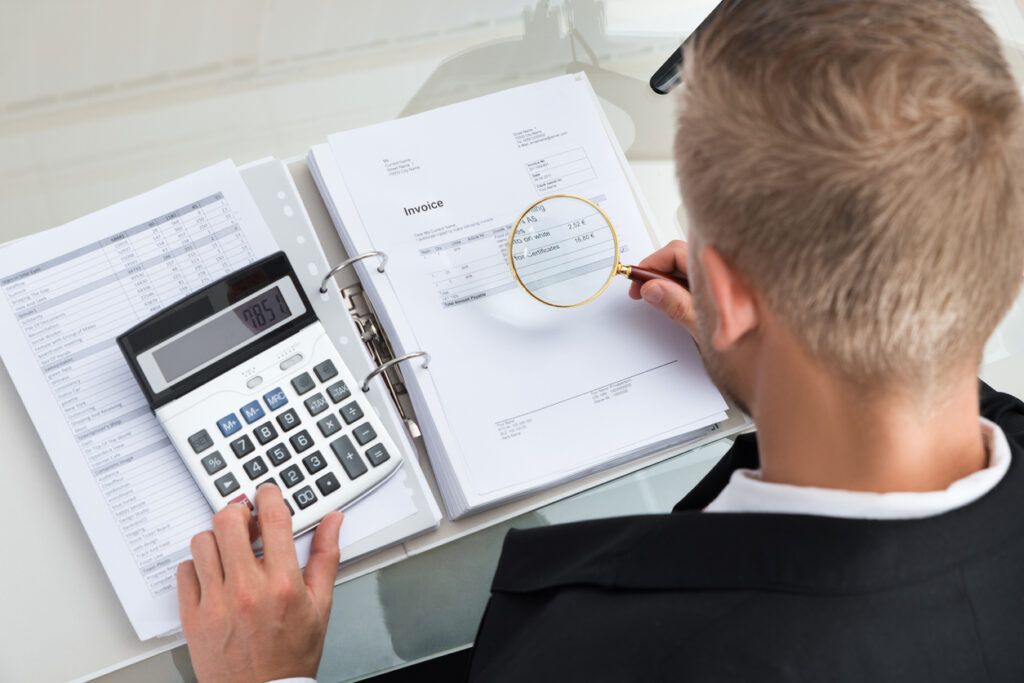So, the postman arrives and you get that dreaded brown envelope land on your doorstep. You open it and its from HMRC – and they want to open an enquiry into your Tax Return and Accounts. What happens now? What would you do?
Why me?
Well-kept records and accurate tax returns are not always enough to avoid a tax enquiry. It is now clear that late tax returns or problems with late payments can trigger an investigation. If you are unlucky enough to receiving an investigation letter there are certain criteria which you can adopt to ensure you get the best result possible.
What is the enquiry?
To be able to deal with any enquiry you must first establish if it is either an enquiry into just one part of the Tax Return (Aspect Enquiry) or a Full Enquiry into absolutely everything on the Tax Return. It is important to note that HMRC needs a reason to extend an enquiry from aspect to full, so challenge this where appropriate.
Where and when to seek Tax Advice
The best person to deal with an enquiry is not necessarily the most technically brilliant. Technical knowledge is vital, but equally important is knowledge of how the system works and the ability to negotiate effectively. Here at F9 we have expertise in dealing with all types of enquiries so you are in safe hands.
Taxpayers Charter
This is fundamental to the way HM Revenue & Customs carry out their enquiries. Taxpayers should be informed of how the enquiry will be run, and can be represented at meetings if they wish. There are time limits in place, and HM Revenue & Customs will only be able to open an enquiry up to 12 months after fixed filing date. (This date can differ in certain circumstances). If you receive a letter relating to an earlier year then you should seek professional advice as the enquiry could be invalid.
Record Keeping
During an enquiry HM Revenue & Customs will ask for the business records. If there is no business bank account the personal accounts will need to be produced. As this contains a mixture of both private and business deposits and expenses proper records should be maintained to ensure the business ones can be easily identified.
However tempting it might be to claim the records are missing/destroyed you should remember that penalties up to £3,000 can be charged if records have not been kept for five years from filing date, so 6 years in total.
Honesty is the best policy!
Always tell the truth! If you do attend a meeting with the Inspector do not be tempted to say the first thing that comes to mind just to satisfy HMRC.
For example, on one occasion HMRC asked what a taxpayer from the north of England did in the evenings whilst he was subcontracting in London during the week. His answer to the Inspector was simply that he sometimes went drinking with other subbies or stayed at his accommodation and watched TV. The Inspector kept pursuing this line until the accountant objected because this had nothing to do with the enquiry. Imagine his shock when the Inspector revealed that his client had paid for a taxi license in the borough of Tooting and had obviously been doing this during evenings. The accountant could do nothing more to help.
Where do HMRC get their information from?
HM Revenue & Customs have a vast source of information available to them. While you might think they will never find out about the additional source of income you have from taxi driving at weekends. This is not so. At the click of a button they would find out who lives at your personal address with you, where you have lived before, if you had a mortgage on the property or if you were renting.
They also have details of all properties in your name and when you bought them. They gather information from Letting Agents and Estate Agents, so they know when you are letting a property and haven’t told them about it.
They have powers to gather information from overseas such as property or investment income.
If you seek representation you will be asked if there is anything you have omitted from your tax return. If you tell us at the outset we will do our best to help you; if not then there may be little we can do. Our word losses credibility if we are found at a later date to be wrong.
Fee Protection?
HM Revenue & Customs were dealing more efficiently with cases where they knew the clients had cover. Fee protection will ensure that all your accountancy fees will be covered and as a client of F9 Consulting, we include the Fee Protection insurance as part of the annual fee, at no additional charge.
Do contact us for further information on this point.
Settlement
With HMRC needing to close the tax gap, they are no nearer finding those who pay no tax at all, but continue to pursue those they already know about. Hoping to make them pay even more tax than they already do. As they need to meet targets themselves it is worth remembering that as the enquiry time lengthens so does your ability to negotiate a settlement. 50% of the total amount due is better paid now, than a possible 65% in two years time.
If you would like advice or guidance on an enquiry or further information, Contact us today to arrange a FREE consultation, we have Chartered Accountants and Tax Advisers in Canary Wharf, Essex and Manchester waiting for your call.


















